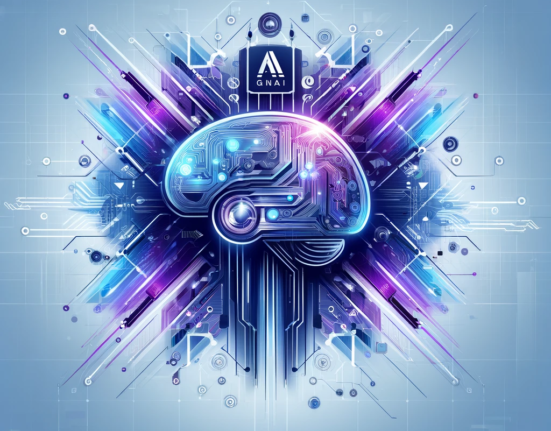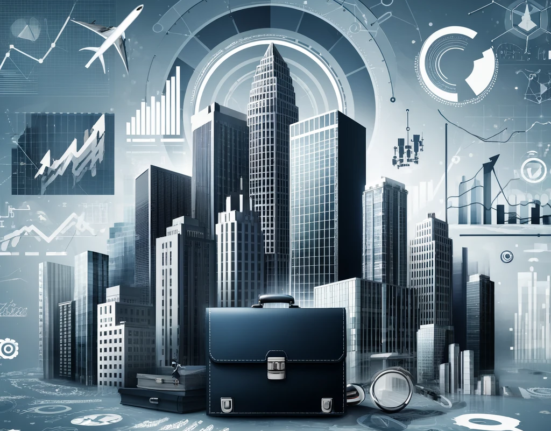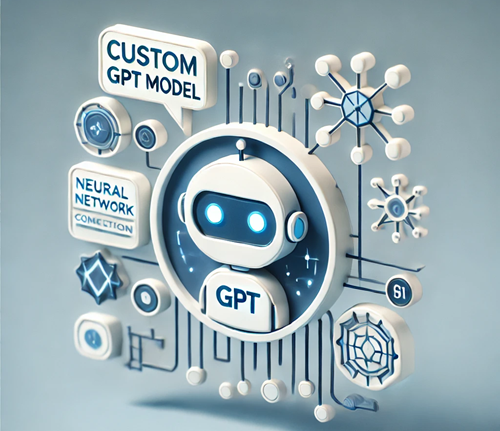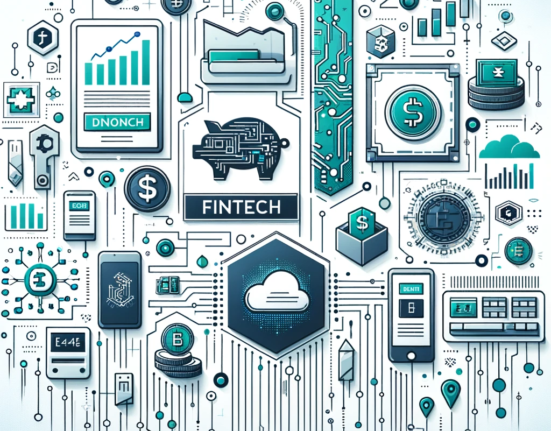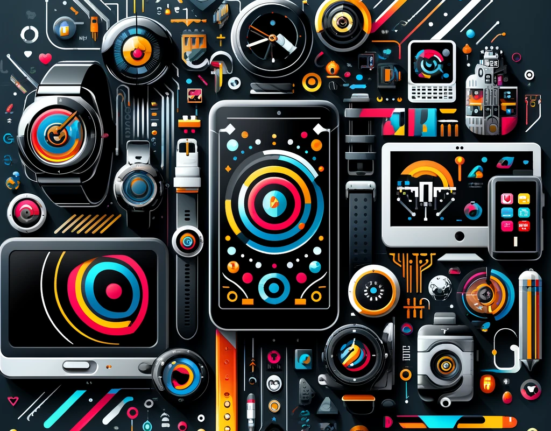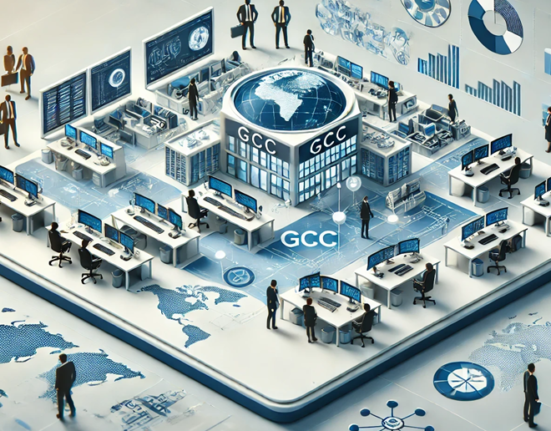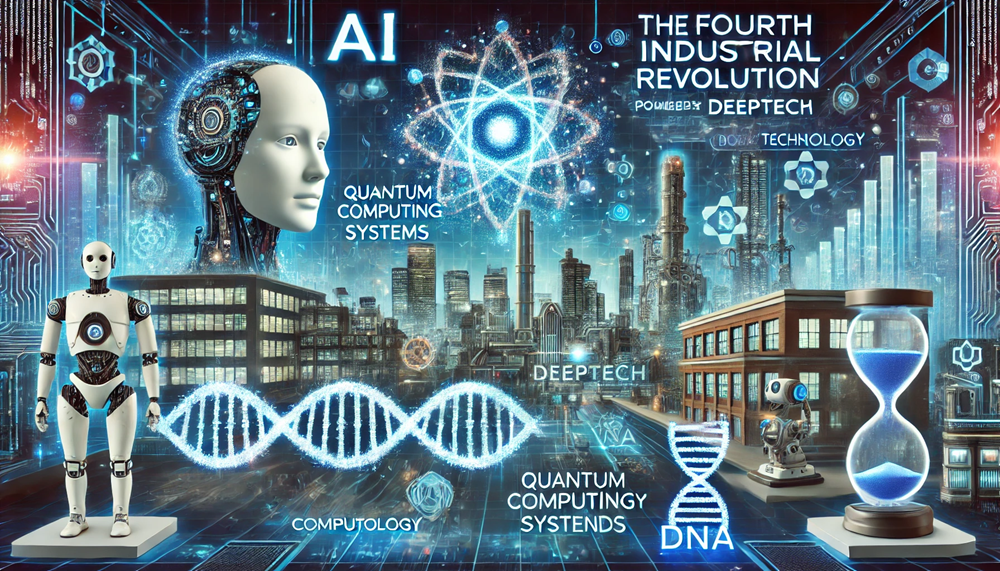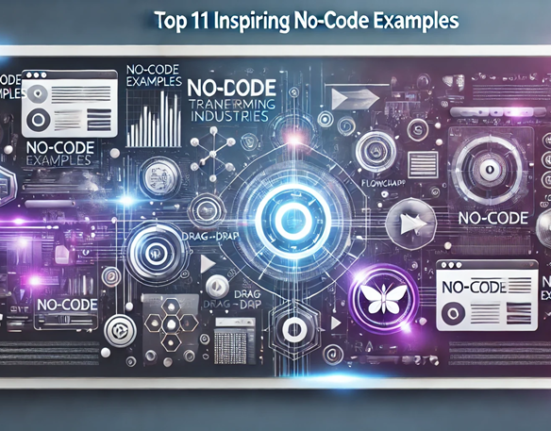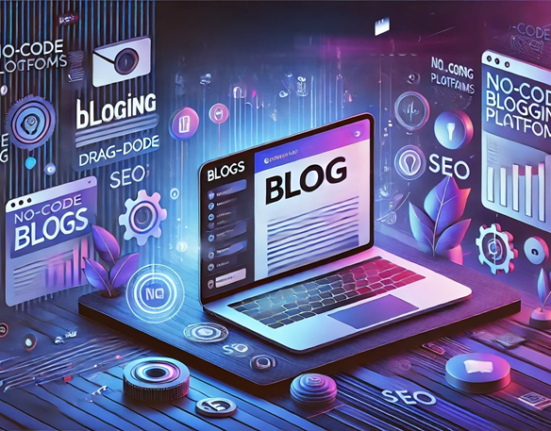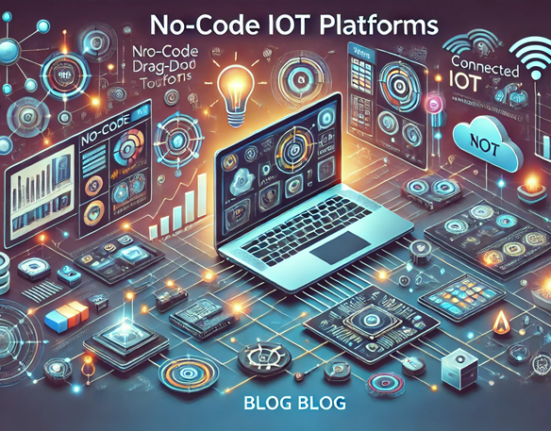DeepTech and the Fourth Industrial Revolution: How Emerging Technologies Are Reshaping the Future
The world is on the brink of a technological transformation unlike anything seen before. The Fourth Industrial Revolution (Industry 4.0) is merging advanced DeepTech innovations—such as AI, quantum computing, biotech, and robotics—to create a future where automation, intelligence, and human capabilities blend seamlessly.
But what exactly is DeepTech’s role in this revolution? How are these next-gen technologies shaping industries and the global economy? And what does this mean for businesses, workers, and societies?
Let’s explore the impact of DeepTech on the Fourth Industrial Revolution and how it is unlocking the future of human progress.
What is the Fourth Industrial Revolution? (Industry 4.0 Meaning)
The Fourth Industrial Revolution is a term coined by Klaus Schwab, founder of the World Economic Forum (WEF), to describe the fusion of physical, digital, and biological technologies that are fundamentally transforming industries and societies.
The Evolution of Industrial Revolutions
- First Industrial Revolution (1760–1840) – Steam engines, mechanization, and factories
- Second Industrial Revolution (1870–1914) – Electricity, mass production, and assembly lines
- Third Industrial Revolution (1950s–2000s) – Computers, automation, and the rise of the internet
- Fourth Industrial Revolution (2010s–Present) – AI, robotics, IoT, quantum computing, biotech, and DeepTech
Unlike past revolutions that were driven by a single technological leap, Industry 4.0 is powered by a convergence of disruptive DeepTech innovations.
What is DeepTech? How It Powers Industry 4.0
DeepTech Definition & Key Innovations
DeepTech (short for Deep Technology) refers to cutting-edge innovations rooted in scientific breakthroughs and engineering advancements. These are not just software-based improvements, but fundamental technological shifts that solve complex global challenges.
DeepTech technologies driving the Fourth Industrial Revolution include:
- Artificial Intelligence (AI) & Machine Learning – AI-driven automation, deep learning models, and generative AI like ChatGPT, OpenAI, and Google DeepMind
- Quantum Computing – Ultra-fast computing power for cybersecurity, drug discovery, and climate modeling
- Biotechnology & Genetic Engineering – CRISPR gene editing, lab-grown organs, AI-powered drug discovery
- Internet of Things (IoT) & Smart Manufacturing – AI-driven supply chains, connected factories, and real-time industrial monitoring
- Advanced Robotics & Automation – AI-powered robots, autonomous drones, and self-repairing machines
- 5G & Edge Computing – Ultra-fast connectivity for smart cities, industrial automation, and real-time data analytics
- Blockchain & Cybersecurity – Decentralized digital infrastructure and AI-driven fraud prevention
These DeepTech advancements are merging physical industries with digital intelligence, making factories, hospitals, cities, and businesses smarter, more efficient, and more automated.
How DeepTech is Transforming Key Industries in Industry 4.0
DeepTech is not limited to one sector—it is reshaping every major industry.
1. DeepTech in Manufacturing & Industry 4.0 Smart Factories
- AI-driven predictive maintenance to reduce downtime
- IoT-connected smart factories that self-optimize production
- Autonomous robots & cobots (collaborative robots) working alongside humans
🔹 Example: Tesla’s Gigafactories use AI-powered robots, real-time data monitoring, and automation to enhance efficiency.
2. DeepTech in Healthcare: AI & Biotech Revolution
- AI-powered diagnostics (e.g., AI detecting cancer in X-rays)
- Personalized medicine using genetic data and AI models
- CRISPR gene-editing technology for disease treatment
🔹 Example: DeepMind’s AlphaFold uses AI to predict protein structures, accelerating drug discovery.
3. DeepTech in AI-Powered Finance & Cybersecurity
- AI-driven fraud detection preventing cybercrimes
- Blockchain-based digital banking solutions
- Quantum computing for unbreakable encryption
🔹 Example: Mastercard & Visa use AI-driven fraud detection models to analyze billions of transactions in real-time.
4. DeepTech in Smart Cities & Urban Infrastructure
- IoT-enabled smart traffic systems reducing congestion
- AI-powered energy grids optimizing power consumption
- Autonomous vehicles & drones improving urban logistics
🔹 Example: Singapore’s Smart City Initiative uses IoT sensors, AI traffic control, and smart grids for sustainable urban living.
5. DeepTech in Space Exploration & Aerospace Innovation
- AI-powered satellite monitoring for climate research
- Reusable rockets reducing space travel costs
- 3D-printed habitats for space colonization
🔹 Example: SpaceX’s Starship program aims to create a self-sustaining colony on Mars, blending AI, robotics, and automation.
Challenges of DeepTech in the Fourth Industrial Revolution
Despite its promise, DeepTech faces significant challenges in adoption:
1. High Development Costs
- DeepTech startups require billions in R&D funding before commercialization.
2. Ethical & Regulatory Concerns
- AI and biotech advancements raise concerns about privacy, security, and ethics.
3. Job Displacement Due to Automation
- AI-driven automation could replace millions of traditional jobs, creating a global workforce shift.
4. Cybersecurity Threats & AI Bias
- As AI becomes more powerful, risks of AI bias, deepfakes, and cyber warfare increase.
Despite these challenges, DeepTech is inevitable—governments, businesses, and researchers are working to ensure its ethical and responsible adoption.
The Future of DeepTech & Industry 4.0
By 2030, DeepTech will fully integrate into every aspect of human life. Expect to see:
✔ Fully autonomous AI-driven businesses operating without human intervention
✔ AI-powered doctors diagnosing diseases with near-perfect accuracy
✔ Quantum computers solving problems 100x faster than today’s supercomputers
✔ Hyper-connected smart cities reducing pollution and congestion
✔ Human-AI brain interfaces enhancing intelligence and creativity
DeepTech + Industry 4.0 = The Blueprint for the Future
The Fourth Industrial Revolution is unstoppable, and DeepTech is its driving force. While challenges remain, the potential rewards far outweigh the risks.
For businesses, investors, and tech enthusiasts—now is the time to embrace DeepTech. Those who innovate today will lead the world tomorrow.
Conclusion: DeepTech is the Future of the Fourth Industrial Revolution
We are standing at the threshold of an era where AI, robotics, biotech, and quantum computing will define human progress. DeepTech is not just shaping the Fourth Industrial Revolution—it is leading it.

